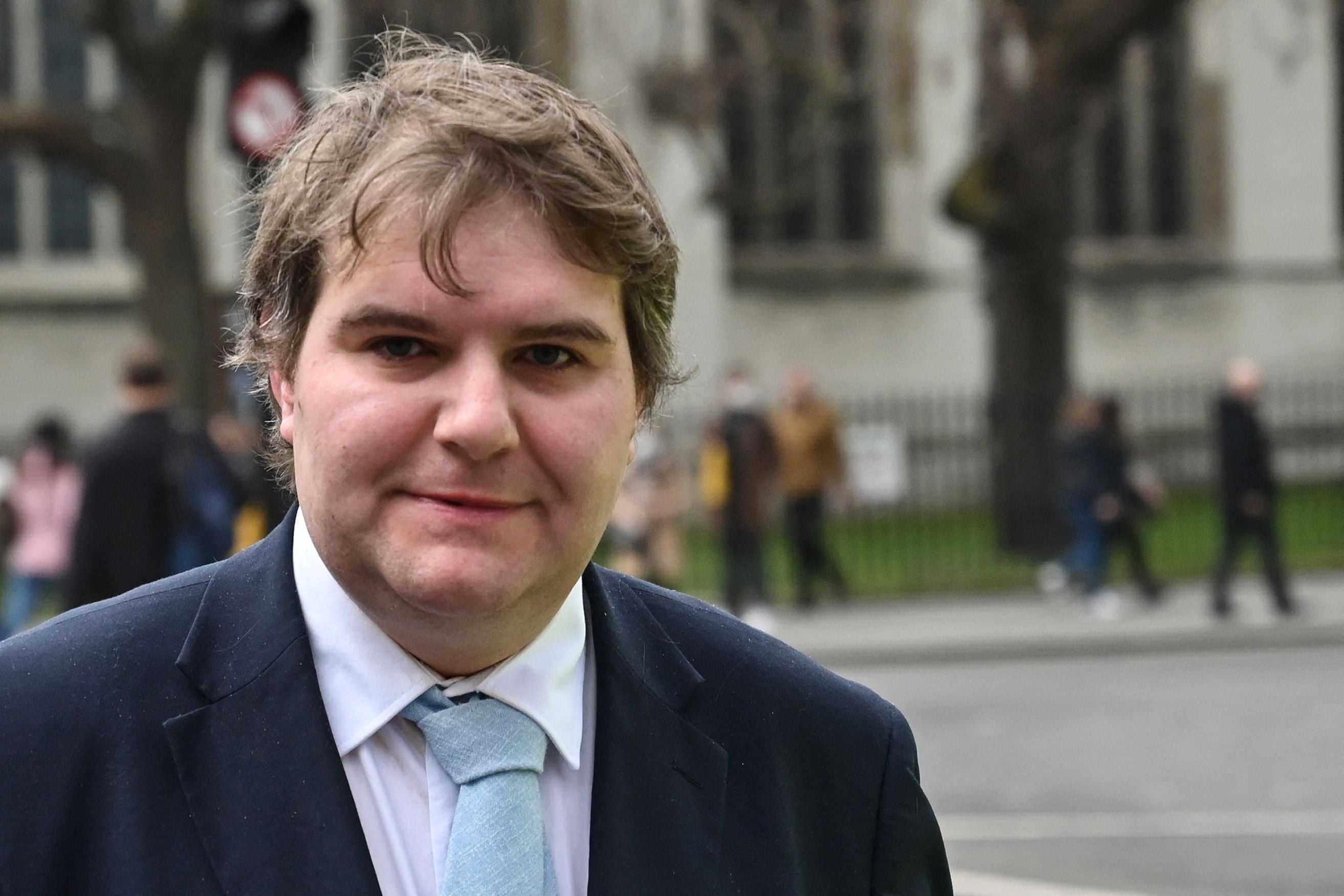Jamie Wallis joins the ranks of LGBT+ politicians in parliament
Westminster and other elite political circles are today more supportive and tolerant environments – but equality is far from a reality, says Sean O’Grady


It is a remarkable sign of changing times that the decision by Jamie Wallis, MP for Bridgend, to come out as trans, and also to detail his appalling experience of rape and blackmail, should have been received in the Commons and the country with such compassion.
Indeed, in an unprecedented moment, the prime minister and the leader of the opposition took the opportunity of Prime Minister’s Questions to commend him for his bravery. Boris Johnson, hardly the most woke of figures, remarked: “The house stands with you and will give you the support you need to live freely as yourself.” Although the endorsement was slightly undermined by an insensitive joke that the prime minister is said to have told at the previous night’s champagne bash for his MPs: “Good evening ladies and gentleman – or as Keir Starmer would put it, people who are assigned female or male at birth.”
Although there is still cruel and unthinking transphobia about, the notion that a trans MP would be able to come out in this very public way represents nothing less than a revolution in social attitudes. In many ways, courageous MPs have themselves led this societal change and increasing tolerance. For centuries, LGBT+ MPs and peers had to live secret lives. There is thus a substantial number of gay MPs who rose to high office or national prominence, some married, some not, who had to pretend to be something they were not.
As a consequence they were vulnerable to violence and blackmail, and the constant fear of being involuntarily outed. Jeremy Thorpe, for example, leader of the Liberal party (1967-1976) threatened to sue anyone who alleged he was anything other than heterosexual – until he faced trial for conspiracy to murder his former lover, Norman Scott. At that point the issue was quietly avoided. The Thorpe Affair, as it was called, was made into a fine BBC drama, starring Hugh Grant, which captured him and the ways of the time well.
Another poignant figure from around the same time was Maureen Colquhoun, a Labour MP who was outed by the press as a lesbian, placing her in the record books. In 1977 a majority of her constituency party in Northampton deselected her as its candidate for the 1979 general election, citing her “obsession with trivialities such as women's rights”. Labour’s National Executive Committee overruled this decision, but she lost the election. Colquhoun died last year.
Though the 1980s saw a surge in gay pride and demands for equal rights for LGBT+ people, and politicians such as Ken Livingstone began to champion their cause, the stigma surrounding Aids and Section 28 (which absurdly outlawed the “promotion” of homosexuality) meant there was a hostile environment in politics. The most high-profile casualty of the time was Peter Tatchell, who stood and lost for Labour in the 1983 Bermondsey by-election in a distressing campaign tainted by homophobia. The man who defeated Tatchell, Simon Hughes, was the first MP to publicly acknowledge his bisexuality, in 2006. Other prominent figures who were gay or bisexual include the outrageous Tom Driberg (also a double agent), Lord (Bob) Boothby and a couple of speakers (Selwyn Lloyd and George Thomas).
Other comings out have been high-profile and celebrated as landmark moments, like Wallis is now. Chris Smith was the first openly gay man to come out as an MP in 1984, and to be appointed to a cabinet, in 1997. Justine Greening was the first openly gay woman in the Conservative cabinet in 2016. The first openly bisexual MP was Daniel Kawczynski (2013) and Lyla Moran has the distinction of being the first to declare their pansexual identity (2020). Baroness (Ruth) Davison is the first openly gay person to lead any section of a mainstream UK political party.
Wallis is another pioneer, and there will be others. But it’s only fair to add that Westminster and other elite political circles are today more supportive and tolerant environments but equality is far from a reality, even when parliament itself has more LGBT+ members than ever.



Join our commenting forum
Join thought-provoking conversations, follow other Independent readers and see their replies
Comments